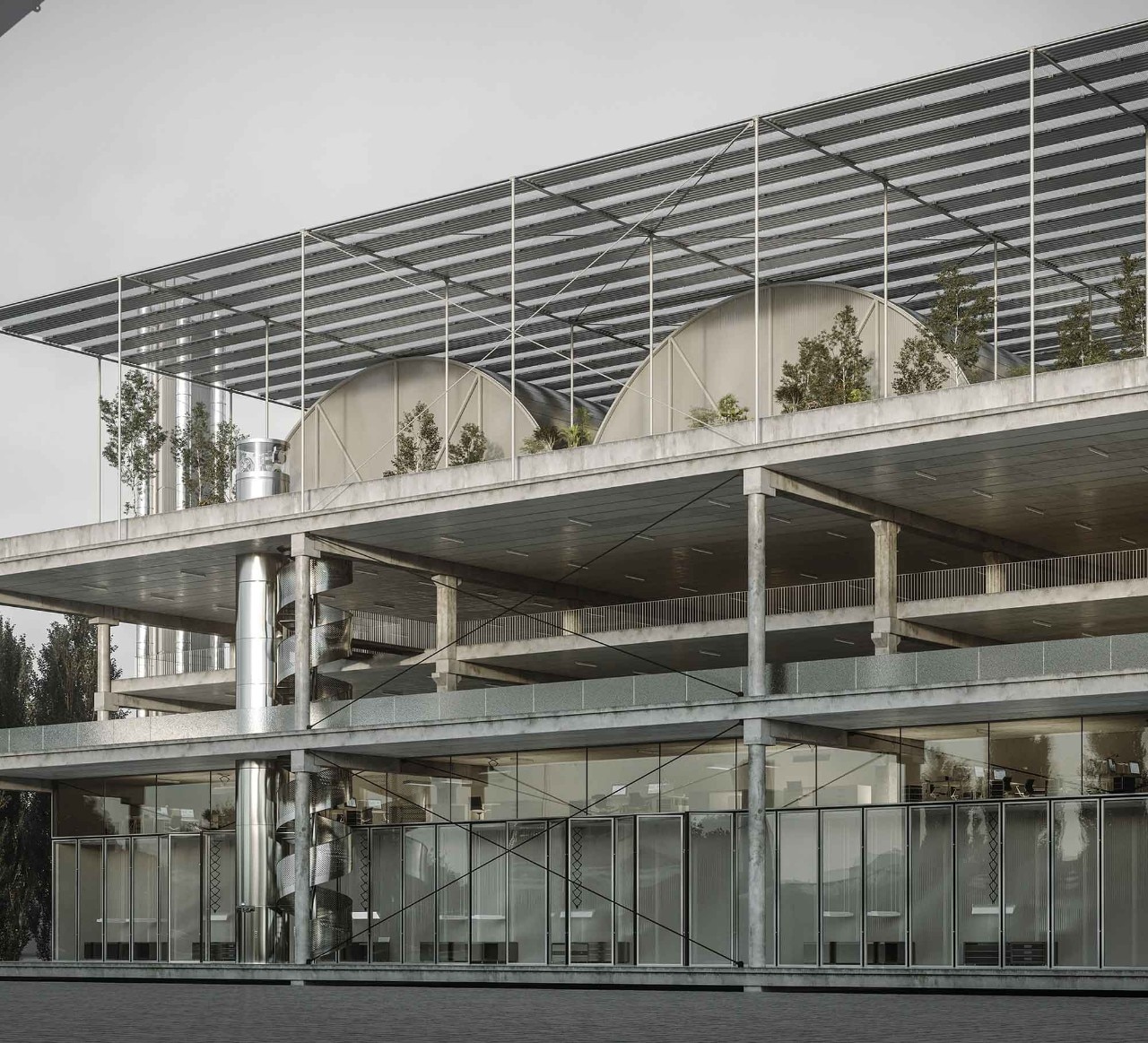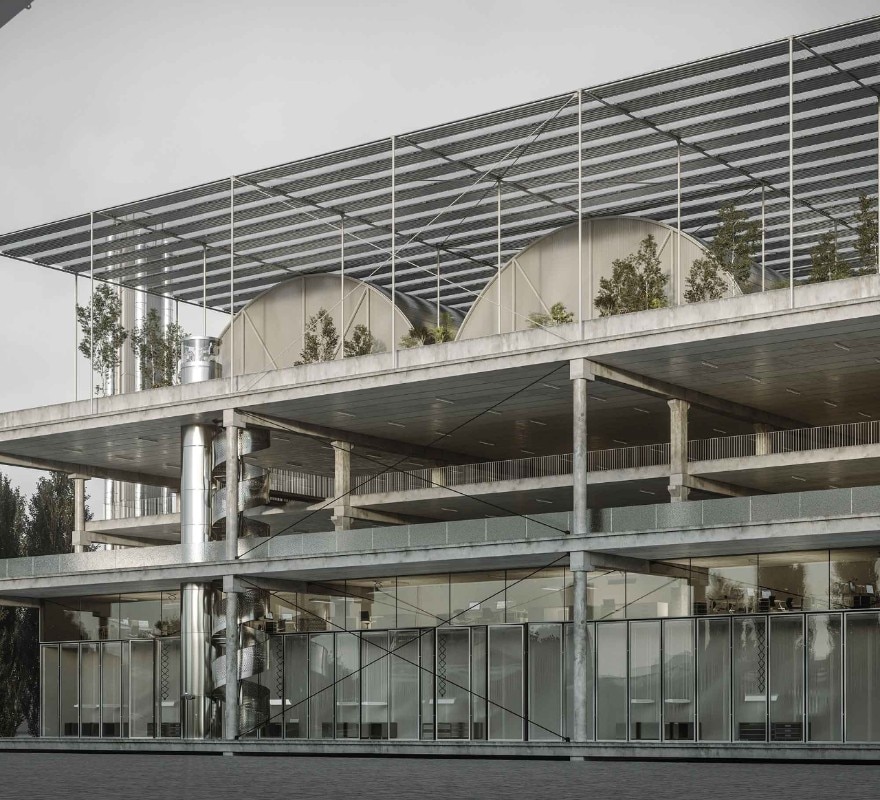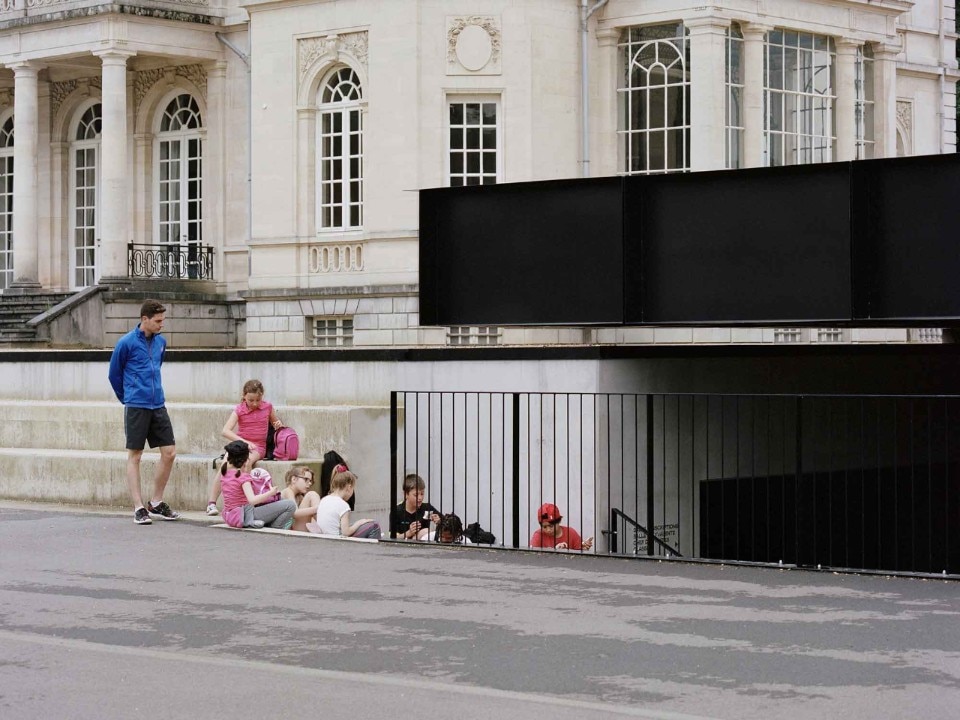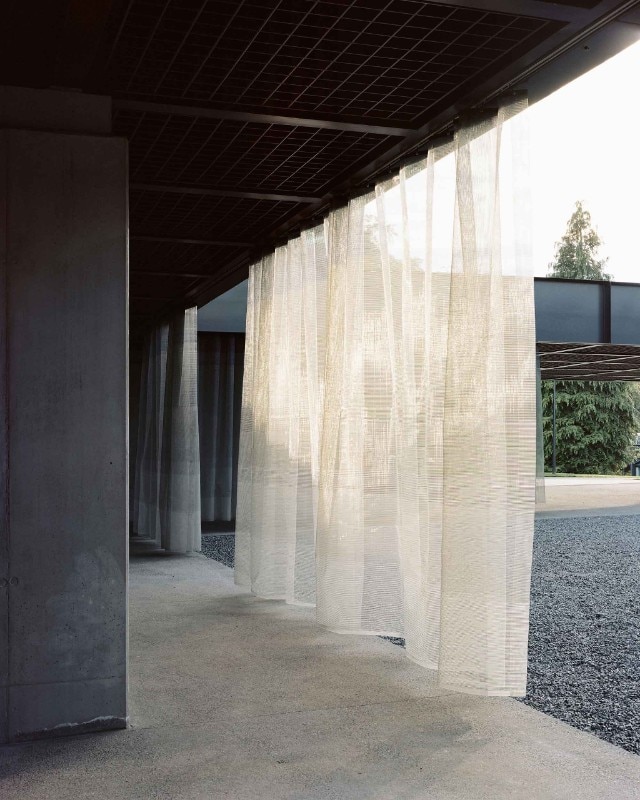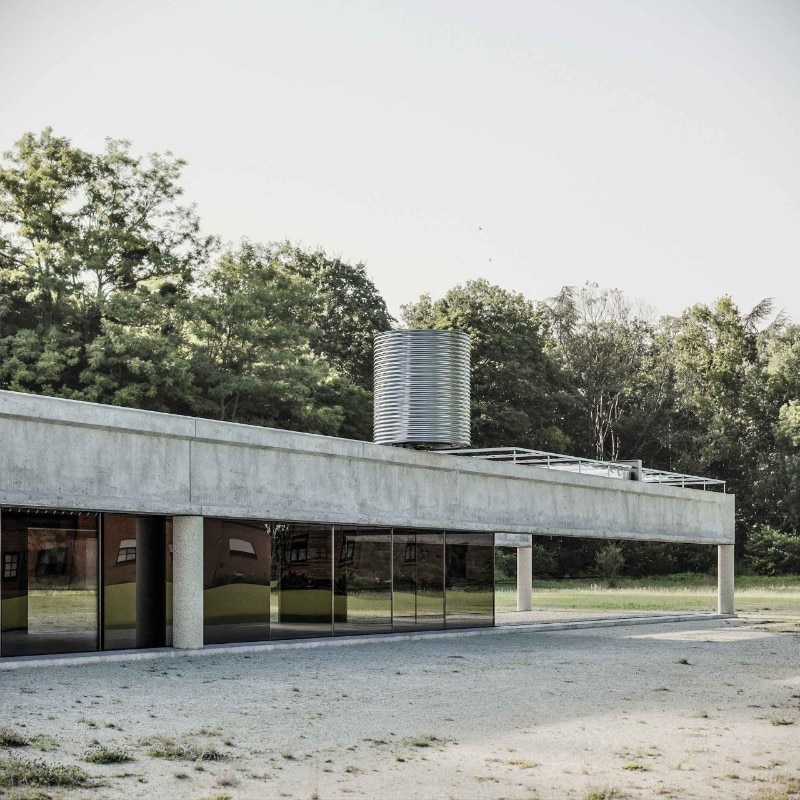From the start, interdisciplinary collaborations at Baukunst have revealed a dialogic approach where architecture lies at the cross-road between art and science. The studio started out in 2008 in Brussels. Since 2017, it has been working with a team of 15 employees and running a branch in Lausanne.
Adrien Verschuere (Brussels, 1976), the founder and director of Baukunst, studied architecture at the École secondaire artistique Saint-Luc Tournai in Belgium and at the École polytechnique fédérale de Lausanne, where he graduated in 1999. He went on to work at Herzog & de Meuron in Basel (2000–2003) and Office for Metropolitan Architecture in Rotterdam. Verschuere is a co-founder of the architecture firm Made In, Geneva. He teaches at the Université Catholique de Louvain. Since 2019 he has been visiting professor at the ÉPFL, and he is regularly a guest critic or lecturer at institutions including the Porto School of Architecture, the University of Stuttgart Institut für Raumkonzeptionen und Grundlagen des Entwerfens, the Berlage Institute Rotterdam, the Mendrisio Academy of Architecture, and the Swiss Federal Institute of Technology in Zurich.
In 2017, Baukunst was short-listed for the Mies van der Rohe Award for its Polyvalent Infrastructure in Spa, Belgium and nominated for the same award for its Structure and Gardens in Brussels – the office’s first two built projects. Baukunst works mostly on buildings for public use in Belgium and Switzerland. Two examples are La Fraineuse (2017), a sports complex in Spa that melds with its site; and La Hunelle community centre in Tongre-Notre-Dame, Belgium (2016), whose flat layout is emphasised by thick horizontal prefabricated beams for the roof.
Now underway is another public-use project, the Manufakture (2019) at the former slaughterhouse of Anderlecht, Brussels. This is a 6,000-square-metre multifunctional building with workshops, car park and a rooftop pool. Due for completion in 2023, it shows rigorous economy of resources. Big open-plan areas are made by using a rational frame, while the neutrality of the composition allows for flexibility for future functions.
In 2019, Baukunst presented its first solo exhibition at the Bozar Centre for Fine Arts in Brussels, where animated models, photos, videos and installations showed the office’s activities and its artistic, philosophical and technical references.
Baukunst
Baukunst works mostly on buildings for public use in Belgium and Switzerland
